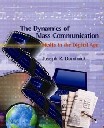1. Social Service Groups on the Net The Internet provides a forum in which niche communities and grass roots organizations that would otherwise be too small to have much of an impact can grow and develop. Pick a social issue that interests you. Find four online groups that are concerned with that issue. Remember, you may need to consider alternative words as you search. For example, "school prayer" may be listed under "religion and schools" or "free speech in school." How do the groups differ? In what ways are they the same? 2. Genealogy Groups One of the great grassroots movements is genealogy. It requires coordination and information sharing that was much more difficult before the Internet became popular. Much of the time, people must work with others they've never met. Fortunately, genealogists have started to put formerly obscure library material online. Digital storage not only saves references that would have deteriorated otherwise, it gives more people access to these references. Look up your own name online. If that is not possible, choose another name. More than likely, it will not be too difficult to get information on your heritage; what can you find out about your name? Where did people with your name come from and where did they go? What did you find out that you did not expect? 3. Girlz Online Typically, the first members of online communications have been men. At one time, evidence indicated that at least 90 percent of all people online were men. It is not the same today. Go to your favorite web portal and look for services that are designed to appeal to women or girls. Specifically, you may look for the "girlz" movement online. How does the look, content or appeal of these pages differ from other web or online services? 4. Contact a Politician Politicians have begun to view the Internet as a campaign tool. Select three politicians that represent your hometown and find their web pages. How are their sites different? How do the politicians' personal agendas affect the content and design of the web pages? 5. Compare Search Engines Most search engines and web portals index the Internet in different ways. Think of a topic that interests you and perform the exact same search on three search engines. Many search engines will refer you to another. You may take the suggestion once, but then try to do the search somewhere else for the third time. Compare the top ten results. How do they differ? Which service got the results you had in mind? | 


 2002 McGraw-Hill Higher Education
2002 McGraw-Hill Higher Education